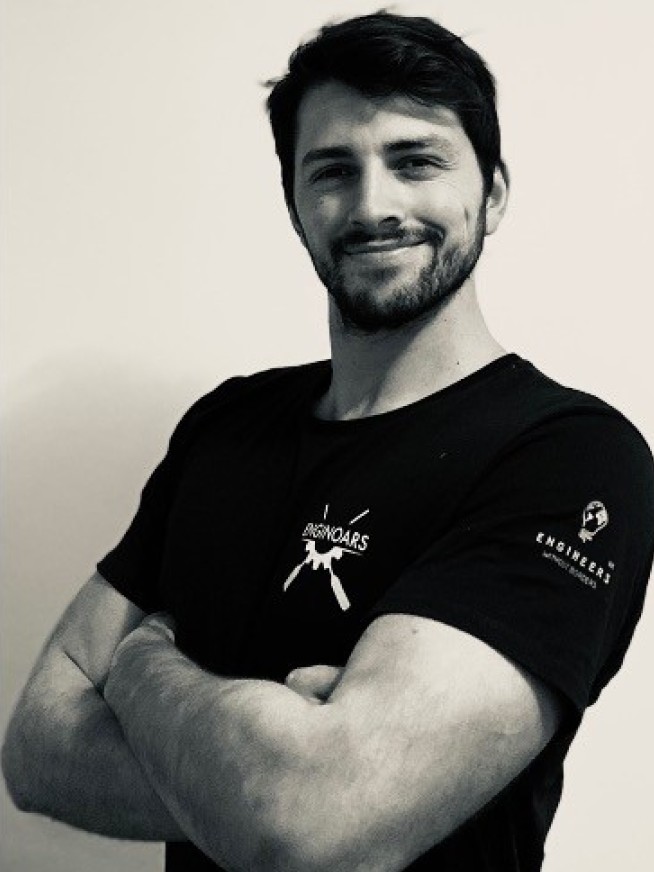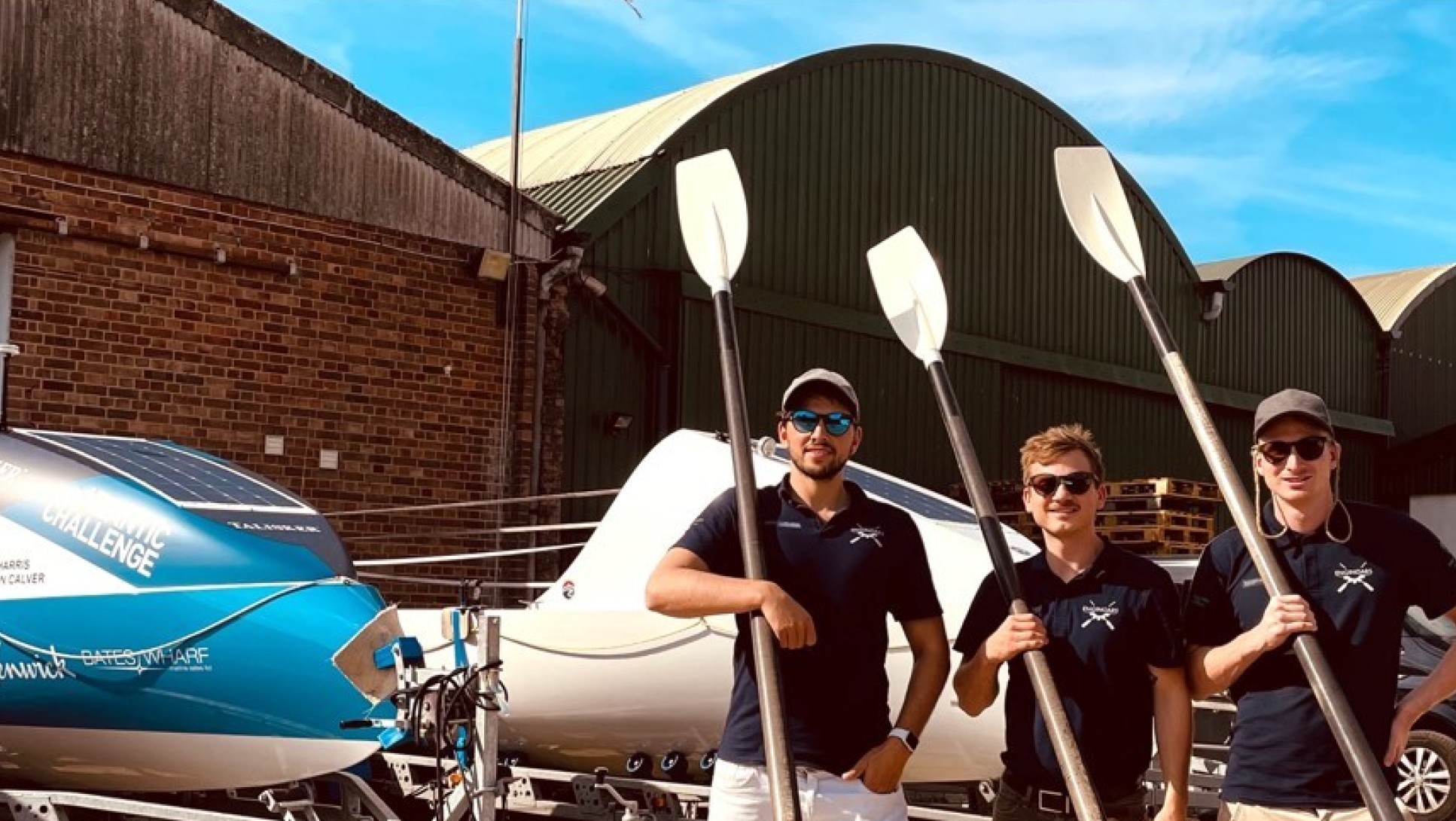
It was at Imperial that computational neuroscience caught the attention of Rufus Mitchell-Heggs (MRes Neurotechnology 2019).
Encountering scientists from many different backgrounds across both his academic and extracurricular life at the College, Rufus was able to explore his range of interests here and grew determined to balance a demanding course with a selection of side projects.
Two years after graduating Rufus is as self-disciplined today as he was as a student, and will soon be rowing 3,000 miles from the Canary Islands to the Caribbean across the Atlantic Ocean as part of a sustainability awareness campaign with four fellow ‘Enginoars’. Rufus will be training for the expedition all whilst working towards his PhD in Neurotechnology, after which he hopes to pursue a career in AI and Neuroscience.
What did you learn during your time at Imperial, in class or out?
Studying at Imperial helped me to discover a new and uncompromising drive. Imperial taught me to explore my limits, refine my passions and to seize each opportunity to learn and grow.
Can you tell us about your studies at Imperial?
Beginning with a strong foundation in molecular and cellular biology, I quickly found myself gravitating towards computational biochemistry. Finally, through the refinement of my passions and using my acquired strengths in statistics and coding, I discovered my niche in computational neuroscience.
Who did you find inspiring at Imperial and why?
Professor Simon Schultz for inspiring others to explore the unknown.
What is your fondest memory of your time here?
Competing for Imperial College in the 2016 SensUs biosensor competition. For me, this was one of the finest examples of mentorship, interdisciplinary teamwork, and entrepreneurial spirit. Over the intense nine month project I had the pleasure of working with a team of mathematicians, physicists, chemists, biochemists, and bioengineers, as we all discovered our strengths and learnt how we fit into a team dynamic.
What is your favourite place at Imperial and why?
Exhibition Road - the walk to Imperial’s front entrance from South Kensington. Passing by the grand Natural History Museum and the Science Museum was a daily reminder of the giants whose shoulders we stand upon. Knowing what has been discovered pushes you to think what can still be discovered.
Tell us a bit about the work you’re doing now.
In December 2022 I will lead four engineers on an expedition to row unsupported across the Atlantic Ocean. Our team, known as the ‘Enginoars’, will row 3,000 miles from La Gomera (in the Canary Islands) to Antigua, following a strict two hours on, two hours off schedule for up to 60 days.
We are working with Engineers Without Borders (EwB) to run a sustainability awareness campaign. To date, this has involved running STEM talks with university students, judging the international student design challenge and running a plastic capturing project, based in Nepal.
Alongside this project I am currently working towards a PhD in Neurotechnology in a collaboration between Imperial and the University of Edinburgh. My PhD uses statistical techniques to investigate how healthy and diseased brains encode spatial navigation and social decision-making. Using rat models and progressive technologies in neural imaging, we obtain live insights into the neural population activity encoding these behaviours.
How has what you learnt at Imperial helped you in your career so far?
Time management - amidst my courses I was always involved in Imperial’s extracurricular activities. These included being President of Erasmus Club and building a biosensor as part of Imperial’s international SensUs team. Balancing these activities with complex course material forced me to become more disciplined and efficient with my time. Today, these skills have been crucial in enabling me to balance my PhD and the Atlantic campaign!
What have been your career highlights and lowlights?
Highlights include purchasing and visiting our R45 Elite Ocean rowing boat. After a year of weekly Zoom meetings, brand building and virtual talks - physically being together as a team and reaching out to touch our boat was the first moment our campaign started to feel real.
Lowlights might include working as a team separated by borders. With one Enginoar in Norway, one sailing the seas and two based in the UK, weekly Zoom meetings have been both our curse and salvation.
What does a typical day look like for you now?
As a principle, I aim to compartmentalize my PhD and the Atlantic campaign. This looks like pure PhD focus during the day and Atlantic campaign training and work during the evenings and weekends.
What are your plans for the future?
Following the completion of my PhD and Atlantic row, I am seeking to join an AI start-up, combining my passions, skills, and drive into a single goal.
What would be your advice for current students?
Discover your limits - they’re further than you think.
What makes you proud to be an Imperial alumnus?
Being so connected to some of the world’s most driven and passionate researchers.
What one word or phrase would you use to describe Imperial alumni?
Equipped.
Do you have a favourite quote or saying?
You have power over your mind - not outside events. Realize this, and you will find strength.
Where can we follow the journey of the Enginoars?
We are also on LinkedIn, Instagram, Facebook, and Twitter!

What makes Rufus proud to be an Imperial alumnus?
"Being so connected to some of the world’s most driven and passionate researchers."